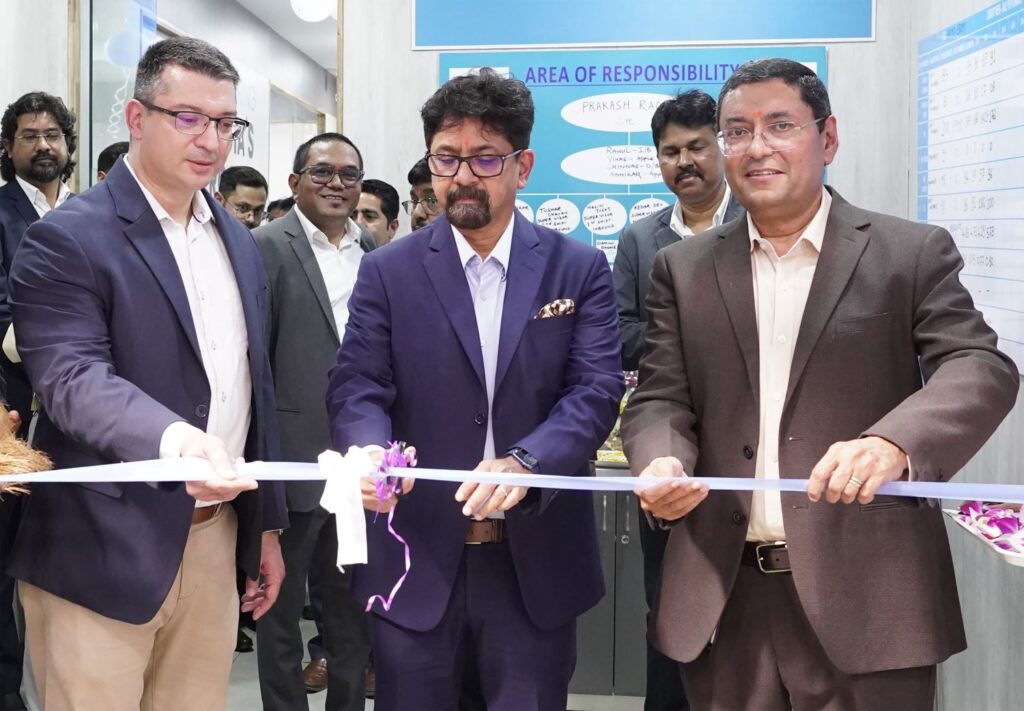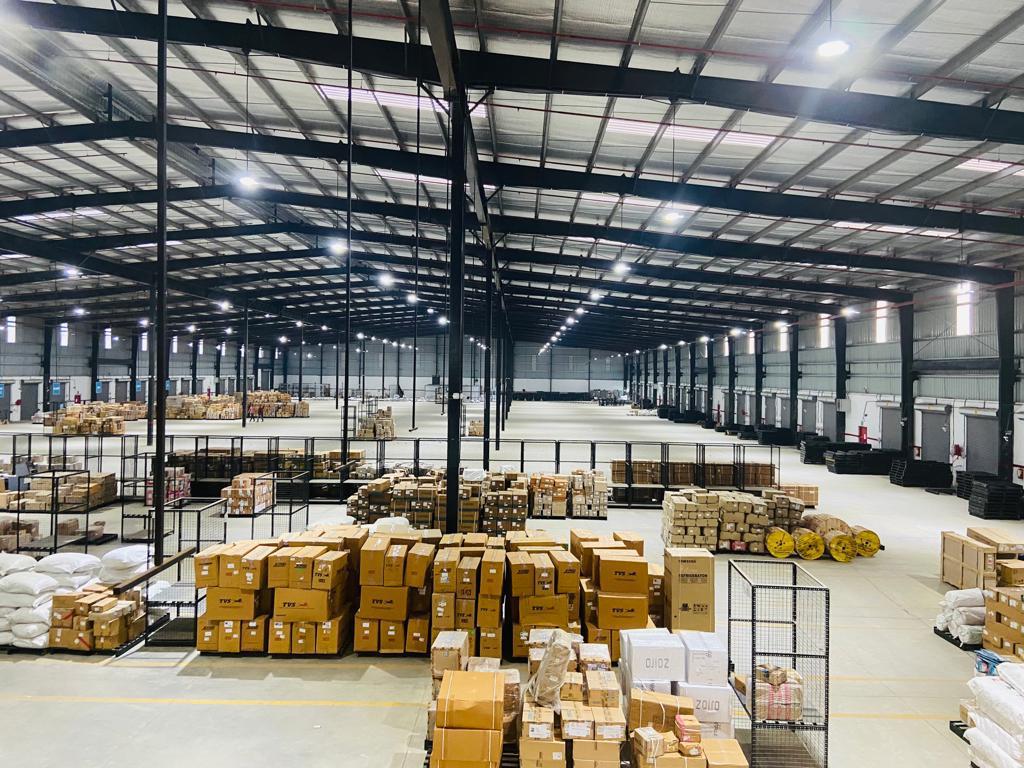Gati Ltd., an Allcargo Group company and one of India’s premier express logistics and supply chain solutions providers, has launched a state-of-the-art and tech-enabled surface transhipment centre and distribution warehouse (STCDW) at Bhiwandi on the outskirts of Mumbai. Spread over an area of over 1.48 lakh sq. ft. the mega STCDW is a Grade A warehouse observing the highest level of construction quality, advanced technologies and a skilled and trained workforce to offer its customers the expertise of express cargo distribution operations, supply chain visibility, reduced dwell time and time definite deliveries.

With a workforce strength of 276 people, the Mumbai mega distribution hub is a terminus for Mumbai and Navi Mumbai, to cater to short haul or regional distribution as well as consolidate-sort-dispatch of long-haul loads for the rest of the country.
The Mumbai hub has been designed in compliance with the green norms and is equipped with built-to-suit technology-enabled warehouses of global standards and advanced features and material handling facilities along with integrated warehousing and distribution mechanisms and superior safety features. Battery operated hand pallet trolleys have been deployed at the facility to ensure operational efficiency. The Steel pallets instead of plastic or wooden pallets are being used at the facility keeping the environment sustainability in focus. The STCDW has also planned to have solarisation facility which will generate 150 KW of power. An AI-powered round-the-clock tracking system at the facility offers real-time visibility of the cargo movements
Commenting on the launch, Adarsh Hegde, Managing Director, Gati Ltd. said, “The launch of super hub near Mumbai is a part of the Allcargo Group’s core vision to play an enabling role in the India growth. As India has emerged as a bright spot in the world economy, we are strengthening our end-to-end logistics delivery service capabilities to support the government’s initiative to boost logistics service efficiency. After consolidating our domestic supply chain, we are now working towards building greater operational efficiency and distribution bandwidth. We are well-positioned to cater to the needs of various growth-focussed businesses aiming to capture domestic markets and connect to global markets. At Allcargo, we are committed to provide integrated logistics solutions, thus supporting the government’s vision to make India a global manufacturing hub.”

Pirojshaw Sarkari, CEO, Gati Ltd. said, “We are pleased to open the STCDW for companies of varied scale to use our facilities and services to grow their businesses. Our STCDW will help them enhance cost efficiency, inventory movements and speed-to-market. The launch of the Mumbai STCDW will further strengthen our position in the highly competitive express logistics space. Bhiwandi has been an undisputed choice for us to set up our super hub thanks to its ability to offer seamless connectivity, congestion-free access to warehouses and convenient inward and outward movements of heavy-duty haulage trucks. With more STCs in line across India with Grade A warehousing facilities, we are working towards developing a robust supply chain backbone, catering to a range of industries.”
The facility has Gati Niwas and a hostel which offer convenient stay while maintaining high standards of safety and hygiene to the Gati Associates, resident team members and handlers. It also has a divers’ lounge with adequate safety and hygiene in place to ensure adequate rest and rejuvenation for the drivers.
Gati aims to build a diverse workforce by encouraging women professionals to join its workforce.
The launch of Mumbai STCDW is a part of Gati’s plan to set up 12 modern, automated and environmentally friendly STCs. After the launch of advanced hubs at Farukh Nagar (Gurugram), Nagpur, Guwahati, and Mumbai the company has plans to roll out STCs in Bengaluru, Hyderabad. Indore and Kolkata as it aims to further strengthen its supply chain and warehousing competencies.
As part of GATI ESG initiatives, Gati aims to convert its entire pickup and delivery fleet of more than 2500 vehicles into alternative fuel vehicles by 2025.